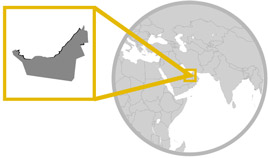Money
Malaysia’s currency is the Malaysian Ringgit and can be divided into 100 Sen. 1 Ringgit is equal to about $0.30 or £0.18. The Malaysian Ringgit is also known as RM and more commonly, MYR.
The currency comes in many coin variants including 1 Sen in both Bronze and Copper-clad Steel coins, 5 and 10 Sen Cupronickel and Stainless Steel coins, 20 Cupronickel and Nickel Brass coins, 50 Sen Cupronickel and Nickel Brass-clad Copper coins as well as 1 Ringgit variants in both Cupronickel and Copper-Zinc-Tin coins.
Bank notes come in 1, 5, 10, 20, 50, 100, 500, 1000 Ringgit variants with a range of different colours and designs for each note. Additionally, Gold Bullion Coins known as Kijang Emas are issued in 50, 100 and 200 variants and are used primarily for investment; their values fluctuate with the international gold market price.
Economy
The third largest economy in South East Asia only narrowly behind Indonesia and Thailand, and the 29th largest economy in the world, the Economy of Malaysia is a newly industrialised open market and state-oriented in nature, albeit in recent years the state’s input in the economy has declined significantly. International trade, especially exporting tin, palm oil and rubber, has always been its forte.
Each year since its independence in 1957 it has grown by an average of 6.5% GDP per year, although it may have started as the world’s biggest exporter of rubber, tin and palm oil, today Malaysia contains a huge multi-sector economy and produces a range of semiconductor devices and components as well as electrical goods, ICT products and solar panels.
Recently the country crossed the MYR 2 Trillion mark ($601.5 Billion or £368 Billion) for the first time ever and the country aims to be a self-sufficient industrialized nation by 2020, with estimates placing that provided the country’s growth either remains constant or increases, it could achieve this as early as 2018.
Banking
Luckily due to the quick development of a the economy within Malaysia in the last few decades, the banking services in the country are not limited in any way and are usually open between 9:30am to 4pm on Mondays to Fridays and 9:30am to 11:30am on Saturdays. Banks within the country include BNP Paribas, Barlcays Bank, Bank of American, ABN Amro Bank, Commerzbank and many more.
Account types in the country typically include Current Accounts: used for day to day banking which function the same way their western counterparts do, Savings Accounts: offer higher interest rates but usually only having a limited amount of withdrawals before a fee is due, and Deposit Accounts: offer the highest rates of interest but most frequently do not allow for withdrawals until the account’s maturity date. ATM machines are also widespread all throughout the larger towns and cities across the region.
Taxes
Malaysia incorporates a mix of varied taxes into its systems in order to help fund the variety of government programs going on to develop the region further. Included are the Income Tax, Vehicle Tax, Property Tax and Consumption Tax.
Income Tax works similarly to the way it does in the West and is only applied when an individual has been in Malaysia for 182 consecutive days or has lived in Malaysia for at least three of the four preceding years and has been living in Malaysia for 90 days. Those over 55, those receiving a pension or living off bank interest and those employed in Malaysia for less than 60 days. Those living in Malaysia for between 90 and 30 days are taxed differently. Income Tax typically falls between 2% and 30% based on the income amount.
Car Insurance is compulsory in Malaysia and Road Tax must be paid by car owners, typically the larger the vehicle’s engine the more road tax is due; other defining factors include the type of car, fuel type and whether the vehicle is for domestic or commercial use. Additionally, Car Tax, sometimes of up to 100%, has to be paid on any foreign vehicle imported into the country.
Property Tax is payable on all property including shops, agricultural land and shops, the amount due is based on the local jurisdiction. Assessment Tax is also due and is based on the annual rental value of a property at usually around 6%, decided by local authorities. Quit Rent Tax is also applied at around MYR 10,000 (about $3010 or £1840) and Stamp Duty Tax is applied to all bought properties based on the value (MYR 0.01 to 100,000 at 1%, 100,000.01 to 500,000 at 2% and 500,000.01+ at 3%).
Although there is no VAT in Malaysia, two types of tax, Sales Tax and Service Tax, take its place. Sale Tax is applied at 5%, 10% and 15% to non-essential food and building materials. Cigarettes and Alcohol are taxed at 15%. Service Tax is applied at 6% on food at drinks in restaurants and hotels as well as on certain other goods.

